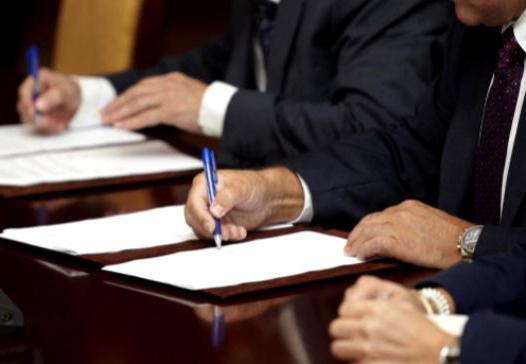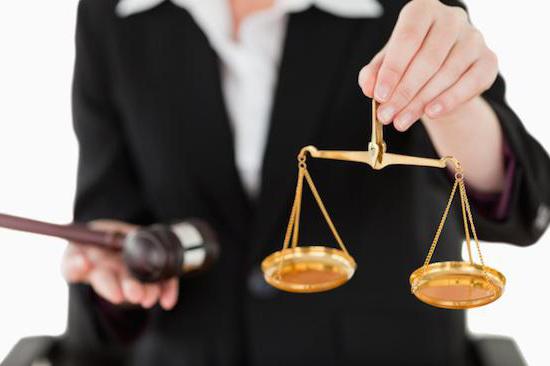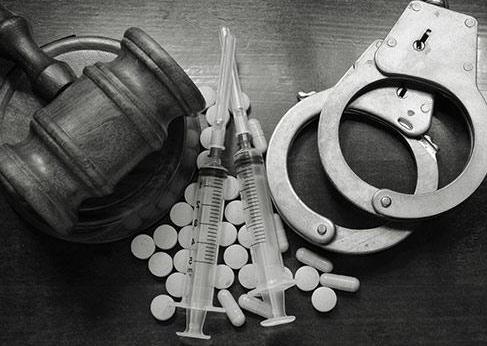The current legislation does not regulate the defendant’s speech in the last word. Therefore, he can say everything that he considers necessary (except insults to the participants in the process), but the information presented by him should be directly related to the case under consideration. A sample of the last word of the defendant is not contained in any normative act. This once again suggests that he should prepare his speech on his own. If the defendant fully pleaded guilty to the committed act and repented, then he can again say this, and also ask the court for leniency. If the defendant does not agree with the decision of the court, in his last word he must give reasons for his innocence and once again tell about all the circumstances of the incident. This will be written in more detail in this article.
What is important to know
The last word of the defendant is crucial for the entire criminal case. Indeed, when making the final speech, a person has the right to speak out about all the charges against him and bring oral evidence in his defense. In this case, the defendant is not limited in time and can speak until the moment he has expressed all his thoughts. He is not entitled to insult any of those present at the meeting.
Every person who appears in the dock must understand that he must prepare a statement in court in advance, at least a few days before the debate of the parties begins. This is necessary in order for human speech to be meaningful and reasoned.
In no case should you look for a sample of the defendant’s last word or ask someone from your acquaintances or cellmates (if the citizen is in the pre-trial detention center) to compose a text for his speech at the court hearing.

How to make out
The defendant draws up a text for himself, because only he will speak, and the rest of the participants in the process should listen to him. Therefore, it is necessary to write the speech on paper (if it is long enough) in a neat handwriting, so that later on in the process it can be easily read, but it is better to memorize it.
A sample of the last word of the defendant, who pleaded guilty to the atrocity, may look like this:
"Dear court and participants in the trial!
I fully (or partially) agree with the charge against me. I admit my guilt in the deed and am ready to bear the punishment that the court will appoint me. Nevertheless, I ask for leniency, because (indicate the reasons for such a request, for example, a wife and small children, elderly parents who need care). I also dare to ask the court not to punish me too harshly (for example, because of my young age, because I had never been held accountable and had not been convicted). In addition, I want to once again apologize to the victims for (indicate exactly what, that is, say about the essence of the deed). Next, you need to say the words of apology. It is important to say about your repentance and desire to make amends for the harm suffered.

Legal advice
It is good if the person who is in the dock has his own reliable defender with whom he can discuss the details of his speech in court, which he will deliver after the debate of the parties.
After all, a good lawyer will always help his client in the preparation of the right text, even he will prepare a speech for him. In some cases, advocates provide the principal with a ready-made sample of the last word.The defendant only selects the right words and speaks at the meeting.
If a citizen refused the services of a lawyer, then he will have to prepare a speech on his own. In this case, lawyers advise not to rush and correctly state their position first on paper and then in the process. If a person does not consider himself guilty, then he is obliged to say so in the last word, and also reinforce the information presented with arguments. He may also ask the court for a fair sentence.
How to build a speech in defense
This is one of the most pressing questions that the accused ask their lawyers. In this case, you need to think through everything to the smallest detail. Then decide on your position (guilty or not) and build on it. The last word of the defendant, the sample text of which does not contain a single normative act, can include the following information:
- words about personal, work biography (if there are certificates, awards for good work, you must definitely say so);
- about the marital status and difficult financial situation, as well as about the fact that the family will lose the main breadwinner if a real term is assigned;
- sometimes it makes sense to say that a person has not been judged before;
- About excellent study at educational institutions;
- Be sure to declare repentance of the deed (this is done only in the case of a guilty plea)
- express a personal opinion on the civil lawsuit (if any).
In case of disagreement
Situations in life are different, and not everyone who is in the dock is guilty of what he is accused of. The question here is different: how to prove their position to the court and what needs to be said so that all participants in the trial believe that the accused did not commit a criminal act? In practice, it is quite difficult, but possible, to prove the innocence of a person against whom evidence has been gathered that confirms the opposite.
After the debate, the accused must deliver a speech that would be convincing to the judicial authority. A sample of the last word of the defendant in a criminal case may be as follows:
"Your Honor!
I have already said that I did not commit the crime of which I am accused. In addition, my defense attorney was presented with evidence confirming my words (it is obligatory to describe which ones). Witnesses (indicate who) also said that they did not see me at the scene of the criminal act.
(Then more convincing arguments for the court must be made so that the authority really doubts the guilt of the alleged attacker).
I just could not do what they accuse me of. In addition, I do not have a criminal record, I work and study, I independently provide for my children and parents.
At the end of the speech, the defendant may also turn to the court with a request that an acquittal be issued against him.
Nuances
The last word of the defendant, the sample text of which we have provided above, is not the responsibility of the accused. Therefore, he himself must decide - will he say something after the debate of the parties or refrain from statements.
Most often, the defendants use their last word in order to once again argue their position. Nevertheless, do not forget that the final speech of the accused is not evidence. Therefore, the court does not always perceive what the excited defendant says. Nevertheless, the latter cannot be interrupted or stopped.
New circumstances
Sometimes additional important circumstances may be identified in the process of utterance by the defendant of the last word. This happens when the alleged attacker tells the court about the need to investigate other evidence relevant to the case.
It is very important to consider a sample of the defendant’s last word in a criminal case, after which the court came to the conclusion that it is necessary to resume the judicial investigation.
"Your Honor!
I was charged under article of the Criminal Code (indicate article number). During the investigation, I was silent all the time and did not want to testify, but now I want to say that I did not commit a criminal act, because another person did it. The evidence for my statement will be the following data (correctly write and explain verbally). "
In such a situation, the court carefully examines all the data and takes a specific procedural decision.
Small characteristic
The defendant’s last word in the criminal process, the model of which is given above, is an additional opportunity for the accused to freely convey his point of view to the court. If the alleged culprit is removed from the courtroom, they should return him and provide an opportunity for expression. If the defendant refuses to pronounce the last word, then the secretary fixes this in the minutes.
Bans
The judicial authority cannot but provide the defendant with the opportunity to speak in his last words. Otherwise, this will be considered a violation of the norms of the Code of Criminal Procedure and constitute grounds for the annulment of the verdict.
Here it should be noted once again that the accused cannot be limited in time in his final statement.
Due to the fact that the last word of the defendant in court, the sample of which needs to be studied very carefully, is important for the case and quite often affects the sentencing, the CPC establishes guarantees during its pronouncement.

Drug Cases
If a person uses prohibited means, then sooner or later he will be held liable for their storage and transportation. In such a situation, one cannot do without the help of a professional defender. After all, cases of possession of drugs always go to the court. The defendant here must firmly determine his position.
Of course, if a person uses narcotic drugs, then the package with the forbidden substance found in his things will be only confirmation that the latter committed a criminal act. Otherwise, you can insist on innocence.
In this case, you need to think carefully about what the defendant will say in the last word in court. The sample text of the final speech of the accused may be of the following content:
"Dear court!
During the time I was under investigation, I completely changed my attitude to life and decided to no longer take prohibited means. I sincerely regret that I stored in my apartment narcotic substances that were intended for personal use. In addition, I have a desire to undergo treatment for addiction. I ask the court not to deprive me of my freedom and to allow me to improve without isolation from people. "
Other options
What other final speech can a person who is accused of possession of drugs, but who does not use prohibited means and does not sell, prepare for speaking in court? In such a difficult situation, you need to consult a good lawyer. The accused may also turn to him with a request that he draw up for him a sample of the defendant's last word under article 228 of the Criminal Code. Indeed, the speech in this case should be competent and reasoned, contain evidence of the innocence of a law-abiding person, to whom, perhaps, someone specially planted a prohibited substance.
The defendant can sometimes express the last word in this way:
"Your Honor! (Applies only to a judge in criminal proceedings)
I am not guilty of what they accuse me of. I don’t use drugs, I work, I have a family, I study at a higher educational institution.To prove my innocence, I want to bring the following arguments (competently and clearly, as well as reasonably).
I also ask you to resume the judicial investigation of the case and invite witnesses to confirm my words. "
In conclusion, I want to say that the last word of the defendant, even if his guilt is fully proved, can play a big role in his future fate. Therefore, you do not need to give up your last word.
